Trent Cotney - Roofing and the New Presidential Administration - PODCAST TRANSCRIPT
May 22, 2025 at 1:57 p.m.Editor's note: The following is the transcript of a live interview with Trent Cotney of Adams and Reese. You can read the interview below or listen to the podcast.
Intro: Welcome to Roofing Road Trips, the podcast that takes you on a thrilling journey across the world of roofing. From fascinating interviews with roofing experts to on-the-road adventures, we'll uncover the stories, innovations and challenges that shape the rooftops over our heads. So fasten your seatbelts and join us as we embark on this exciting Roofing Road Trip.
Heidi Ellsworth: Hello and welcome to another Roofing Road Trips from RoofersCoffeeShop. My name is Heidi Ellsworth and I have to tell you, this is a Monday morning, you may not know that, but I'm getting to start my day with one of my dearest friends in the roofing industry or any construction industry and that is Trent Cotney with Adams & Reese. Trent, good morning.
Trent Cotney: Hi. Same here. I couldn't think of a better way to start the day than be able to kind of chat with you and talk about the latest and greatest from D.C.
Heidi Ellsworth: I know. That's what this Roofing Road Trip is all about. I want to hear what you're hearing and all of the things you're working on because you are so intricate to the roofing industry, to the construction industry overall and everything that's going on. So let's start first for those very few people out there who don't know you, can you introduce yourself and tell us a little bit about your firm?
Trent Cotney: Sure. I guess I have been, how long have I been practicing now, about 28 years and I almost entirely focused on representing the roofing industry since inception. We are very blessed and fortunate that, like you, we travel a lot. We get to talk to roofing contractors and work with them and I serve as general counsel for a variety of associations including NRCA, Western States, FRSA, the Chicago Association, so on and so forth.
Heidi Ellsworth: Yeah. National Women in Roofing.
Trent Cotney: Yeah, absolutely. And what that does is it really gives me an opportunity to hear what the issues are and by having sort of my ear to the ground, I can come back here to the office on the rare occasion when I'm actually in the office and it allows me to really understand what the issues are and you see the same thing. It's hard to understand what's really going on until you can go to different places across the US and then you get a real sense of what the issues are. So that's kind of what I do. I love the industry know. Like I said, I've been involved with it for a few decades and it's something I'm very passionate about. Advocacy and roofing is why I'm still a lawyer.
Heidi Ellsworth: I love it. I love it. Well and along with being a lawyer, you are also a registered lobbyist.
Trent Cotney: So yeah, I served as both a state lobbyist and a federal lobbyist for quite a while. Now I work in a consulting capacity, so I continue to engage with outside lobbyists. The firm has a lobbying group as well and I'm often brought in as either a stakeholder or for sort of that expert level advice on how to approach things either from a legal standpoint or regulatory compliance.
Heidi Ellsworth: Yeah, very cool. Very cool. So with all that awesome experience and everything you do within the industry, let's just dive in, Trent and let's talk about this new administration, happened January 20th. What are you seeing from the new administration that may start affecting positive and negative on the roofing industry?
Trent Cotney: Yeah, absolutely. So I'll start off by saying this and I said it when you and I talked at IRE, is, I don't see blue or red, I only see green. So none of this is political commentary. It's just how I see it affecting construction. There's some pros and some cons from this administration and I'll kind of start off with the pros. The pros I think are deregulation. The regulation is always something that is costly and expensive and difficult for roofing contractors to navigate and I think the idea of curtailing some of that regulation is probably a benefit for roofing contractors.
So to give you some examples, the OSHA heat injury and illness rule, which I probably spent a hundred hours on last year preparing for, it's probably dead in the water at this point. And there are a variety of other things that are out there that are kind of dead. Trump administration put in a rule that for every new regulation ten have to have to be removed. So I think that you're not going to see a lot of new regulation this year as it relates to what you typically see in roofing.
Another pro is I think depending on how the current tax bill works and if it goes through, there's some things that could be beneficial there for contractors. So for example, the no tax on overtime. You're a business owner, I'm a business owner and one of the first things you realize as you add on employees is, Hey, payroll tax sucks.
Heidi Ellsworth: It's hard.
Trent Cotney: Not having to pay payroll tax on overtime is a great thing for employers to have to deal with. And then there's some other tax benefits that are out there. So I think high level, those are a couple of things that I think are beneficial.
Some things that cause me to kind of pause or maybe take a step back a little bit is the tariffs I think may have at least a short-term impact on some of the things that we're doing. We've already seen some movement within steel because of the 25% tariffs that were put on those. There's a lot of uncertainty and concern about how tariffs will impact not just the materials that we actually put on the roof, but the chemicals that are used to make up those materials. So that's something that I've had to navigate and obviously we'll discuss more on that issue.
The other issue, the biggest issue is immigration. That is by far the biggest issue. There is almost a zero tolerance type policy to immigration as it stands now and as an industry, we've become very reliant on foreign labor to help supplement our workforce regardless of whether that's W-2 or that's a 1099 sub crew or whatever it is. We've already had a lot of reports of ICE raids occurring. We've had reports of crews no-showing or partially showing and I think it's going to have an impact on the availability of labor and as a result is going to cause labor rates to increase.
So those are the two. If I had to say, here's two pros, here are two cons, I would kind of sum it up like that. Obviously there's a lot more out there, but those are the big ones.
Heidi Ellsworth: And I mean a lot of what you're talking about too is increasing pricing, whether that's through tariffs or through labor with immigration. So that's going to be something interesting to watch with the economy since the whole kind of thought process out there was to bring inflation down and to bring pricing down. That seems to be going a little bit the opposite direction for who knows how long. But it's interesting to see how that's happening.
And when you look at that for contractors and I want to talk a little bit, I'm going to stay on that line of materials, when you're really looking at the materials for contractors, working with their manufacturers, understanding what may be affected, I have to tell you, Trent, the other day I was visiting with some folks about tariffs and about the steel and aluminum tariff and specifically from China and I mean this is such an obvious thing, but I didn't even think about this is going to have an effect on tools. It's going to have an effect on anything and everything that has aluminum and steel in it. So it's not just we all think it's metal roofing, but it's everything around that. So how are you seeing that affecting contractors and what should they be doing to prepare for some of these increases across the board?
Trent Cotney: Yeah, I have had some reports of manufacturer increases and it's always difficult to tell when you've got a manufacturer increase. Is there a direct correlation to tariffs or are certain manufacturers using the news about tariffs to justify price increases?
Heidi Ellsworth: Yeah,
Trent Cotney: So I do anticipate that it is going to have an impact, especially on aluminum and steel.
There's a handful of things that contractors can do to prepare. So I developed a provision in 2004. We've talked about it before on different topics, but the price acceleration provision would basically cover any tariff increase. And what that provision is is it says that in the event that any material line item goes up by more than 5%, you can put whatever percentage you want, but typically I put 5%, that you're entitled to an equitable adjustment of the contract. The second part of that provision is you actually have to show the cost, so you can't hide the ball. But that provision has worked through hurricanes, it's worked through the material crisis, it's worked through everything for the last 20 years and it's been tested. That's one of the things, having both drafted contract provisions and litigated, you get the opportunity to see what really works and what doesn't work. That works.
So I've been asked, "Well, can you develop a very specific tariff provision?" I would prefer to have just a blanket price acceleration provision. I reached out to a contractor before we got on and they wanted to put a letter or something together to kind of talk to their customers about the potential of tariffs. It was like, that's fine, but you already got a price acceleration provision in your contract because I know you're using our terms. So that is something that will protect you regardless of what happens, whether it's tariffs or something else.
Next thing that you need to do is, obviously, I advocated for this a lot during both covid and the material crisis and that is get to know your distributors and your manufacturers very well. Don't just rely on your salespeople. Talk to your credit manager. And if you've got a distributor, the best thing that you can do is become friendly with the credit manager because the credit manager controls your destiny in a variety of different ways and they may have insight that your salesperson is going to brush over. So know people upstream. You and I have the privilege of being able to go to various meetings and go to expos and we get to meet a lot of the C-suite and others that are part of these manufacturers and distributors. And having those contacts is critical because if you and I want to know something, we just pick up a phone or text somebody and I encourage contractors that are out there to do the same thing, get involved because the more information that you can gather, you can start reading the tea leaves before those prices start increasing.
The last thing I would tell anybody that's listening is don't panic because there's a lot of noise out there. Tariffs are being used strategically to incite change. So some of them will stick, some of them will not. What I always say is, until it hits my bottom line, I'm not going to worry about it, but prepare it nevertheless.
Heidi Ellsworth: Yeah, I agree. Be prepared. And that kind of goes along with... And we've been talking about this so much with labor and immigration. We had just for everyone out there, if you haven't listened to the Coffee conversations that I'm with Trent, it would have been the end of February. February 2025. I'm telling you, it is spectacular and you will get so many nuggets and learn so much. But since we had that Coffee conversations, Trent and the immigration overall, what are some of the things that you're hearing that, is it accelerating, is it kind of leveling off and what should contractors really be looking at or thinking about?
Trent Cotney: Yeah. It's fairly steady as far as enforcement. So we're continuing to get calls. I would say we get more calls in Chicago northeast, the West out that way, that we're hearing of ICE raids or we're hearing of notice of inspections for I-9 audits. So my advice to employers would be a handful of things. One is understand what your rights are and how to respond to an ICE raid.
As you mentioned, we did a great podcast on what to do and how to go about doing it and that's a good resource. There's some other resources out there. I did an article on professional roofing NRCA's Magazine about it and you can pick up resources elsewhere, I'm sure, on RoofersCoffeeShop or other places.
So the other thing that I would say is that in addition to making sure how to respond to an ICE raid, is to do an internal audit of your I-9s and make sure you're compliant. If you catch something that's wrong, you're entitled to correct that. Typically, what we do is we recommend making the correction, initialing it and then attaching a page explaining why it was corrected, when it was corrected, how it was corrected.
So you're entitled to correct stuff up to the point you get a notice of inspection. So the goal is find the problems now, make sure that you're crossing your Ts and dotting your Is, keep those I-9 separate, do all that kind of stuff. And prepare. Prepare is going to help you from the employer's side.
The other thing I would recommend is that there's a lot of uncertainty. I had the opportunity last... I've been in five states in 10 days and talking to some of those contractors, there's significant concern. There's significant concern for their employees and for their subs and they want to know what can they do to help them. And there's a variety of things. I mean, one, having those open, honest communications with them, saying, "Hey, let's talk about it." You can't ever talk about immigration status with them, but you can talk generally and say, "Hey, here's some resources."
Typically, what we like to see is you provide a handful, two or three maybe options for employees, specific immigration attorneys. They're typically different than what you would see on the employer side. We offer resources, so there's a variety of resources that are out there that you can say, "Hey, here's some great guides." We remind employees of their rights. You don't have to speak to ICE. You're not required to speak to them. Obviously, you don't ever want to obstruct any investigation or anything like that, but you're entitled to have a lawyer. You don't have to speak. So understanding what the rights are, those are important.
And I think really it's just about having that kind of communication, not just for doing the right thing, but also understanding where your labor is. Are you going to potentially lose some labor? What have they heard? That's a great way to start the conversation is saying, "Man, a lot going on in the news. Have you guys heard anything? I heard this competitor down the street, had an ICE raid. You guys heard anything on your end? What's going on?" And a lot of that is just talking.
The other thing I'd recommend, Heidi, is always talking to distribution. If I ever want to know what the latest issues are, I just go to the local front desk and I ask the question, "What have you heard?" That's where if you ever want to know anything, they'll tell you immediately. So that is stay in the know, know your rights, prepare in advance. That's what I would say.
Heidi Ellsworth: Yeah, it's so true. Let's stick to this kind of international theme because there's so much going on. There are tariffs across the board, Canada, Mexico, EU, China, you name it. Obviously we have the immigration. Plus, there's just a lot of overall kind of disruptions with international trade, with supply chains. Can you talk a little bit about that? A lot of times we're thinking just locally or we're thinking about just our company, but this international global effect of what's going on does start affecting our supply chain and overall on our businesses in the US.
Trent Cotney: And we saw this during the material crisis. We saw the impact of logistics and how that can potentially have a domino effect and all the issues that we had back then, we still got the same issues. Nothing's really been corrected. We still have the same... Our ports are antiquated. There were some laws that were enacted to try to help things, but the bottom line is that we still have a lot of the same issues that we did three years ago, four years ago. But the current administration, it clearly has an agenda. It's an agenda that was planned in advance even to the election and it is disruptive. For better or worse, it is a change agent and anytime you have that, you're going to have a ripple effect. So there is a lot of uncertainty out there and that level of chaos can be transformative or it can be destructive and I think that it is too early to know exactly how that's going to impact our foreign markets and our supply chains.
I haven't heard of any real supply chain disruption. I've heard of some price increases here and there, but nothing overly significant. Now, there was some concern with regard to trucking and shipping that was coming across the border from Canada and how that would impact. And when you don't give a lot of heads up and you slap a tariff on somebody and the prices increase suddenly, then you're in a situation where you've got to say, okay, do I want to pay that extra amount or do I want to leave it there? So you will have some disruption as it relates to that. And my suggestion is, as we talked about the price acceleration to deal with cost increase, I'd also make sure that you have a material unavailability provision which deals with delays associated with obtaining materials and says that you're entitled to a time extension for that. And I would check your act of God or force majeure provision, which says things like war, terrorism strikes, you're entitled to more time. Make sure it specifically calls out material or equipment unavailability because you never know.
That's the issue right now is we're only 50, 60, 70 days in and a lot of this is noise on purpose. So I don't know when the dust settles what this looks like. I don't like uncertainty. I don't know many lawyers that do.
Heidi Ellsworth: I don't think the market does either, Trent.
Trent Cotney: Yeah, I think the idea is just prepare as best you can and we'll see how this potentially plays out. Like you, I'm absorbing as much news as I can and I guess, maybe in six months we'll have a better understanding of what this looks like.
Heidi Ellsworth: Well, this is not the last on this podcast. We're going to be talking with you a lot because I mean, things are changing daily. So okay. Let's talk a little bit, come internal a little bit and talk about the Department of Government Efficiency and what that potential impact has on the roofing and construction industries.
Trent Cotney: So I think there's some positive stuff here potentially for roofing. The whole goal is sort of coupled with deregulation. The idea behind it is to reduce inefficiency and remove waste. I can have some real world examples. For example, the OSHA building in the Boston area I believe was part of the DOGE cuts and so there was some question there as to where the compliance officers, I don't know, I just heard this from a contractor, so this is hearsay clearly, but the contractor told me, "Hey, did you hear about this?" I was like, "No," but I know that that was part of their thing was eliminating buildings that weren't being used as much. So I think that you're going to see a lot of cuts. The attempt is to streamline and shrink the government and every single aspect of that will be looked at.
One of the things I was concerned about when I saw the Department of Education rollback is how that would affect CTE. So I reached out to our group. I also talked to Craig Brightup and some of the other lobbyists out there and CTE and VoTec should be fine, is the message I'm getting. Again, we'll wait and see, but some of the functions of the Department of Education are being shuffled elsewhere. So for example, student loans are going to the SBA and it's not that all the functions are disappearing. So I guess if I had to say, I think some of the red tape and stuff of that nature will be eliminated on a federal basis. So some of the environmental regulations, for example, that may have impacted or prevented certain work from being done may be lifted, which may be a good thing for construction on the federal aspect.
What everyone needs to understand is that states always generally have the ability to be more restrictive than the federal government. So California for example, if you're roofing in California, it's going to be business as usual because they've got Cal/OSHA, which is a state plan. It's more restrictive than federal OSHA in a lot of ways. They've got their own environmental regulations and other things, all of which could potentially be more aggressive than what the federal stance is. There's some intersection there where there are certain things that are clearly in the federal framework and there are certain things that are clearly in the state framework, but generally that's sort of the rule.
Do I think it'll be a good thing for roofing? Probably. I think that rolling back red tape and decreasing some of the efficiency is a good thing. How could I see it hurting roofing to the extent that infrastructure contracts or things that came out of the Inflation Reduction Act are rolled back or canceled, there was some roofing or solar components in that. So those contracts, those federal contracts may impact certain contractors if they were looking to bid on or participate in that kind of work.
Heidi Ellsworth: Yeah and it's interesting because with the amount of layoffs, this may be something roofing companies want to look at. Also, from a labor standpoint, I know it's probably not going to be on the roof labor, but there are definitely going to be a lot more people on the market looking for jobs. So in my mind I've thought about that and thought there's a lot of veterans, a lot of great people who may be back on the market, not in government jobs anymore.
Trent Cotney: Yeah, definitely there's going to be some opportunity with any potential employee want to make sure it's a good fit. But I think there's going to be a handful of people out there that may be able to fill certain roles depending on what you're looking for, especially procurement managers and things like that that role may be able to translate into a roofing type position. So yeah, there's definitely some opportunity there.
Heidi Ellsworth: Yeah. Okay. Taxes, we've been going to Roofing Day, which is coming up in April. If you haven't registered yet, you should register because this is more important than ever that you attend Roofing Day in D.C. and have a voice for the industry. But for the last three or four years we've been talking about main street taxes on the pass through. What do you see happening on tax policy that is going to affect the contractors going forward?
Trent Cotney: Yeah, generally what I'm seeing suggested from the Trump administration is probably beneficial for contractors. The S Corp pass through, there's some back and forth on that and a lot of this has to be approved by Congress, so that remains to be seen how that looks. We talked about the no tax on overtime. There's been some suggestion of personal deduction for interest on car loans that are made in the US that could potentially be beneficial for owners or whatever. There was some suggestion, although I haven't seen anything other than it being a suggestion of expanding some kind of fleet tax benefit. I don't know how that would look because you already get a business expense associated with fleet vehicles like your trucks and things of that nature. But I'd like to see how that looks.
I think overall they're looking for a series of tax cuts and things of that nature to help stimulate the economy and help offset some of the sluggishness that we may see as a result of tariffs or inflation or other things that are kind of creeping up. So anytime you're talking about taxes, you got to get congressional approval. So I'm not sure exactly how that's going to look, but we'll see. I think overall, if I had to say, I think it's probably a positive thing for contractors.
Heidi Ellsworth: Yes. And it is going to be interesting to see what happens on the tax front. And there's a lot of contractors who are kind of like, do I need to shift my business? What do I need to do? Do I need to look at doing things different on my tax status for my business? What are some proactive steps at roofing contractors? I mean, is it kind of a wait and see or is there proactive steps that contractors should be taking when it comes to how their business is structured?
Trent Cotney: So both. It is wait and see because any new tax stuff that comes out, it's going to affect this year, but you don't have to worry about this year until next year when you're getting ready to file. So that being said, though, you need to plan. So I always say that any roofing contractor or any contractor needs three things. They need a really good insurance agent that understands roofing and construction. They needed a good attorney that can help navigate stuff and they need an accountant, a CPA that understands construction.
So one of the mistakes that I see a lot of contractors do, especially those that are just starting out, is you've got a bookkeeper that helps with the office stuff and whatever and that's fine, but they're not providing that high level CPA type advice that you're going to be looking for from a tax perspective. And the bigger you get, the more concerned you become about how do you legally reduce your tax footprint. Having those discussions now in one queue is going to benefit you because you can plan in advance. So what I would recommend and I'm still working on my taxes for this year-
Heidi Ellsworth: Me too.
Trent Cotney: ... in fact later today, that's going to be one of the things I got to start working on. So having those discussions now, it's a lot better than waiting until December to figure out, oh, well, I should have done this and if I had just done this, I would've saved 20 grand. So I think taking advantage of what you see now and starting that planning process now is a good thing. You can always adjust depending on what happens from a tax perspective in the Trump administration.
Heidi Ellsworth: Yeah, really, really good. Okay. So overall, what advice would you give to roofing contractors on what they can do? So if there's contractors out there who are either feeling pretty okay with what's going on or feeling good or there's some who maybe are not so happy with what's going on, I'm sure it depends on the topic and the subject, but how are some of the ways that they can get involved and have a voice and really help get the roofing industry to be heard?
Trent Cotney: So I always try to approach everything that I do and it's be purposeful and consistent and I'll kind of break each of those down.
So purposeful. So, like you, I got very limited time. Every minute is more valuable. You can't put a price on time for me. It is the most important thing. So everything that I do on a given day, there's got to be a purpose for it because there's only so much time. So that's the first part of it.
And then consistency is the second part. So I have always been a big believer, a big advocate for getting involved in your associations. I started with my local association here in Tampa, moved up to FRSA, the state association, moved out to other states, eventually regionals and then national. And I show up, I've shown up to meetings again and again and again and again and again. And to be honest, sometimes I don't want to. I'd rather be with my family or I've got work. But that level of consistency is important because one, you hear things and you understand things, right? So what's going on in the industry?
The second thing is you create lasting relationships. So like you, all of my friends are in the industry. I know many of the people in roofing better than I do some of my family members. And my wife and son have also gotten to know everybody as well. My son's grown up in the industry. So it is a very valuable thing to remain involved in, but you've got to consistently show up. You can't just show up once and then say, okay, I checked that box. The only way you're going to get anything out of it is that if you continually do it and if you put in that time, it will result in dividends because you will gain the connections. And even though it's a big industry, it's really not. It's who and how quickly can you obtain information and get things done. So that really helps to build relationships.
I think being involved with know whether it's Western States or FRSA or any of the great associations that are out there is very important because they advocate for their regions or their states or whatever it is. But also getting involved with NRCA is obviously the national association and its focus is everything that we're talking about today. So Duane Musser, Deb, all the great lobbying group that they've got out of their D.C. office is working on this daily and they're the masters of understanding everything that's going on. So when I've got a question and I want to know what's the latest, I lean on them a lot and they're just really insightful, fantastic lobbyists that we're blessed to have with NRCA.
I think that Roofing Day, as you mentioned, is a significant opportunity. I'm there, I'll be there.
Heidi Ellsworth: Me too.
Trent Cotney: And it's a great way to not only get to hear what the issues are, but communicate with like-minded professionals. Everyone's there spending their own time, their own money because they care about the industry and I think it's an important thing to do. Through McKay's leadership, he's really kind of fostered and taken this into the next generation and I like where I see it going. I think that this is all the way from back when Reed started it to now you look at how impactful it's been. And to me, I think it's just a great opportunity for contractors to really see how the sauce is made, for better or worse, it really gives you an understanding of how you can make an impact. And that I think is really important.
So that was a very long answer to your question, but my response would be get involved. Get involved and stay involved. Stay involved, because that is how you make the connections. That's how you really know what's going on. If you silo yourself, if you isolate yourself, you're never going to see the bullets coming. You're never going to know what's going to hit you. It's going to hit you too late. So you got to get involved.
Heidi Ellsworth: Be involved. Get involved in your local, your regional, your national associations. And Trent, the thing that I have loved watching is not only do we have our national Roofing Day in April, but we also have several state roofing days. So check with your state association and see when they're going to your local state capital to talk about issues. Because like Trent said earlier, those issues are different and the states supersede a lot that goes on. So it's not enough just to be involved on a national level with Roofing Day, but also in your state association. And really, if you don't have a Roofing Day right now, get involved and encourage one, because that makes a huge difference.
Trent Cotney: Yeah. Something else that's worth mentioning is I know National Women in Roofing always has a big presence at Roofing Day, but I think they're actually having a luncheon this year too.
Heidi Ellsworth: They are, yes.
Trent Cotney: A great opportunity. If you're watching this and you're like, "Well, I don't know. I'm a little nervous. I don't..." But look, you talk about a great group of people, you can ask for more welcoming group. So encourage you if you're kind of on the fence, recognize that there's events like that where they're going to make you feel more welcome.
Heidi Ellsworth: Yeah, I love it. It is such a great event. I will be there. Trent, thank you. I told you this Monday morning, you'd make me feel better. So we definitely have an eye on the ball. We know the industry through folks like Trent and through all of our associations are there working for the contractors every single day. So Trent, thank you so much.
Trent Cotney: Thank you. It's always a pleasure. And I tell you, you guys are doing great things. I should have mentioned this. If I ever want to know what's going on, I just got to RoofersCoffeeShop. All I got to do is look at the front page and I got all the news I need right there.
Heidi Ellsworth: Oh, thank you. Our editorial team, they are cranking stuff out and the press releases that are coming out recently, woo. Don't miss a single thing because there's a lot going on. So. Well, Trent, thank you so much. Will you come back this summer and kind of give us an update?
Trent Cotney: Anytime you want me, I'm there.
Heidi Ellsworth: Okay. We'll be having you back. So everyone, please check out the Adams & Reese directory. Also, Trent has his own directory. He's an influencer. He has been an influencer for us forever. There are so many great articles. Really, when you need information, just search Trent Cotney and what's going on and you'll find it on RoofersCoffeeShop. All the most critical topics are happening right now.
Also, check out all of our podcasts under our read, listen, watch and be sure to subscribe and set those notifications so you don't miss a single episode. Trent, one last time. Thank you so much.
Trent Cotney: Thank you. Always a pleasure.
Heidi Ellsworth: And we will be seeing you all next time on Roofing Road Trips.
Outro: If you've enjoyed the ride, don't forget to hit that subscribe button and join us on every roofing adventure. Make sure to visit rooferscoffeeshop.com to learn more. Thanks for tuning in and we'll catch you on the next Roofing Road Trip.

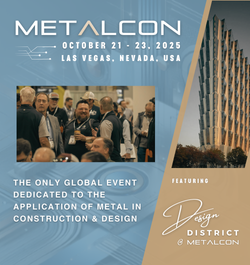

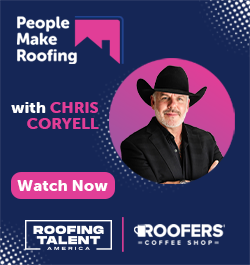









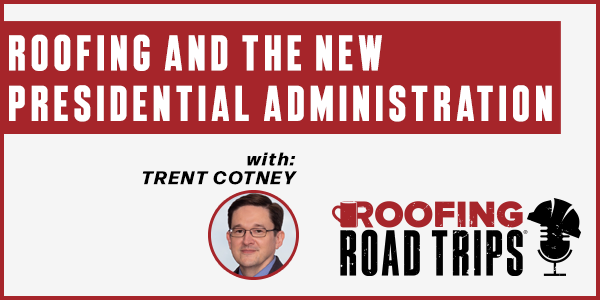


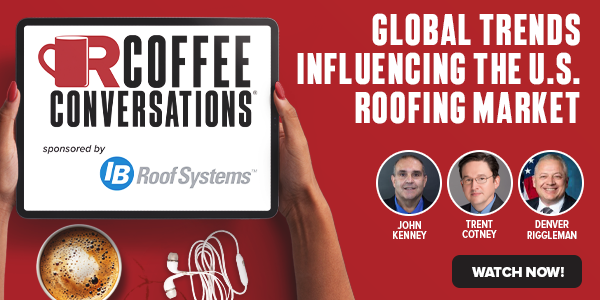


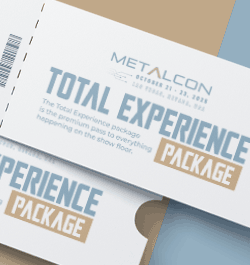
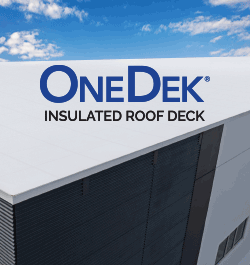



Comments
Leave a Reply
Have an account? Login to leave a comment!
Sign In